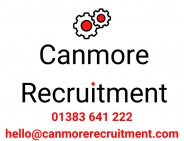by Jade Allan
My one-and-a-half-year-old is going through a phase of calling every female adult “a mummy.” She rushes to point them out to me in her books and in the street, each time she spots one. To her, a mother and an adult female are one and the same thing. And quite exciting things, at that.
If only hiring managers saw it this way.
Mothers are not only less likely to be hired but, when they are, they’re offered lower salaries and presumed to be less committed to their work.
What’s more 50% of employers agree its reasonable to ask women if they have young children during the recruitment process and 1/3 of employers in the private sector think it’s ok to ask if you plan to have children in the future. Let’s be clear, the only reason to ask this is to rule you out.
It’s called the ‘Motherhood Penalty.’ And yes, it is specific to female parents. (The opposite is the ‘Fatherhood Bonus’, which makes men more hireable and better paid after the arrival of children.)
From within my own cohort of new mums, tales of belittling, side-lining, guilt-tripping and outright bullying since announcing pregnancies at work are rife. Apparently, 100,000 women experience harassment or negative comments related to pregnancy or flexible working every year.
“Pregnancy discrimination is illegal, immoral and completely unacceptable. There is no excuse for such attitudes from these employers, who frankly are dinosaurs. British business simply can’t afford to lose out on half of the available talent pool.” Jo Swinson, MP
So, we’re faced with a choice. Go back to a workplace that didn’t support us before having a child or boldly seek a new role, knowing the odds of being hired, let alone paid fairly, are pretty darned slim.
Time to Rebirth Recruitment?
I was one of the many women who found herself seeking work as a relatively new mother. I didn’t know the precise statistics, but I’d been around long enough to know that my hire-ability plummeted the second my daughter was earth side. I had 20 years professional experience behind me. But I also had a child.
You’ll find no mention of the latter achievement on my LinkedIn profile, despite considering it my greatest accomplishment by far. I only now broadcast this fact because I’m in a role I love, in an organisation I truly believe will change the world of work for people like me and millions more.
If you’re serious about attracting returning mothers to your workforce, read on.
We All Fall Down
Here’s the normal process. You see a job you fancy and hit apply. You’re asked to upload your CV and a cover letter. Simples.
Not if you’re a new mum. You see the job. You know you could do it well. It’s a role you feel passionate about and you’d love to apply. But just contemplating being away from your new baby 5 days out of 7 breaks your heart. And there’s no mention of possible part time or job share options. You can’t commit to 9–5 because when you factor in the commute there’s no way you can make it work with childcare hours. Would they be open to flexible hours? I don’t want to ask for concessions during the interview process, how would that look? Oh god, imagine I actually got an interview. I’d have to explain why I have this gap in my CV. Then I’ll have to ‘admit’ I have a baby.
We all know what happens next.
Nothing.
Qualified, passionate candidate doesn’t even show up in the process. Meanwhile, the cries of ‘Talent Shortage’ reverberate above us.
Closing the Confidence Gap
As well as making flexible options crystal clear in job ads and career pages, you can make sure returning mothers feel welcome to apply by proving you really don’t need to know if they have children. You do this by getting rid of the antiquated CV as a screening tool. With it, goes the anxiety for a returning mother about how to deal with the baby-declaration dilemma, that’s if she even gets an interview.
Replace the CV with questions that assess candidates’ ability to do the job and review them ‘blind’ so no one knows whether the answers come from a parent or not. Not only does this remove the opportunities for bias (unconscious or otherwise), it’s much more likely to uncover the best person for the job, which is really all anyone needs to know.
Applied employers do exactly this — eradicate bias from the selection process. By taking out the opportunities for hiring managers to be ruled by unconscious biases that make for pretty dodgy decisions (like choosing a lower qualified candidate over a fertile one), everybody wins. It means huge sections of the talent market that were completely overlooked by the traditional process can now be seen clearly.
The platform is designed around dozens of ‘nudges’ to guide employers towards more inclusive and effective hiring such as prompting hiring managers to ask themselves if a role could be flexible or remote. I think it was Anna Whitehouse, aka Mother Pukka (flexible working champion and one of my heroes) who I first heard put it this simply, “all jobs should be assumed flexible unless otherwise proven” — usually the reverse is painfully true.
Knowing my parental status wouldn’t even factor in my being shortlisted for my role gave me confidence to apply through Applied. I knew, for once, I had a fair shot. At a time in our lives when professional confidence is at an all-time low, a process that builds excitement and boosts confidence is something any employer looking to attract returning mothers has to take seriously.
Untapped Talent
Since having a child, my energy for work is higher than it’s ever been. The time I have available to focus my mind on ‘deep work’ is so limited now that I throw myself voraciously into it each day I get the chance. On top of that, perhaps because of it, I am way more focused on the task at hand and better able to organise my day than I ever was before I had to navigate the rigours of a toddler’s routine.
I’m driven to set an example to my daughter now, too. I want to teach her work is to be enjoyed, not just endured. Returning to work, it was extremely important to me that whatever I did professionally would not send me home at night feeling unappreciated or un-stretched because I want a better life than that for us all. Since becoming a mother, work matters more.
The Future
Seeing the explosive growth of Applied and the huge variety of organisations adopting this way of assessing candidates makes me hopeful about the future. If my daughter becomes a parent one day I can now envisage a world where she won’t have to choose between her child and her career. Clearly, there’s still a way to go but in the meantime, I’m going to take a leaf out of her book and exclaim loudly and excitedly, ‘I’m a Mummy.’
Jade Allan is Client Growth Manager with Applied and you can contact her on Linked In for more information on their recruitment software, designed to remove bias from the recruitment process.
Jade originally published this article on her own blog.

